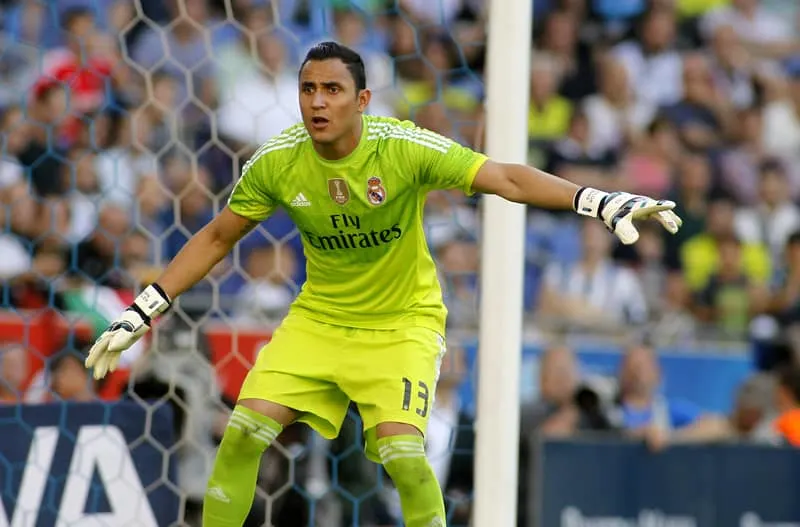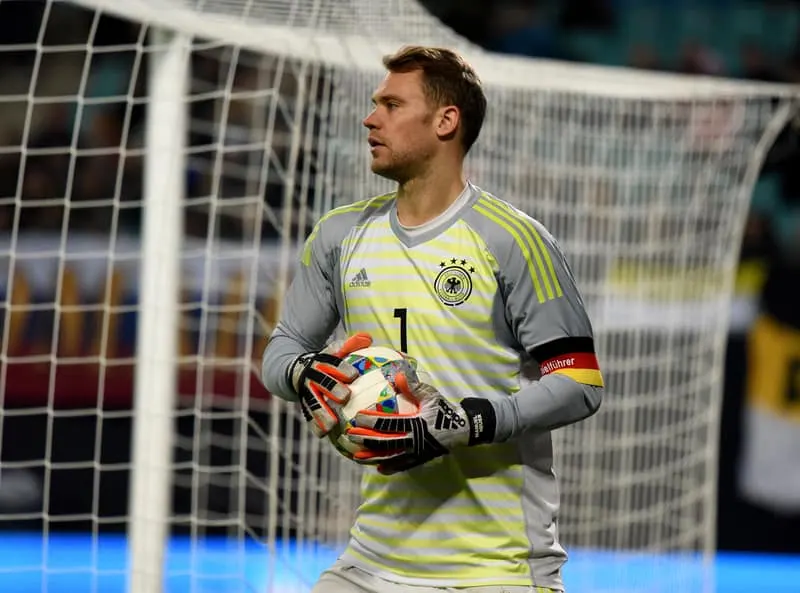
Depending on which team you’re cheering for, seeing a 0 at the end of a soccer game can either be a wonderful or disappointing thing. Whether it’s the result you were hoping for or not, you may hear the commentators congratulate the goalie on having a clean sheet.
What does a clean sheet mean in soccer? A clean sheet means that one or both of the teams ended the games with zero points, and thus a clean sheet is awarded to the goalie or goalies who didn’t allow any goals to be scored against them in that game.
Do Clean Sheets Happen at the Pro Level?
Soccer tends to be a relatively low-scoring game, and it isn’t uncommon for one or both teams to fail to score during the course of the game.
Youth soccer leagues tend to have higher scoring games on average (as many of them don’t have goalies at all), and then the average amount of goals scored per game decreases as the player level goes up.
The reason why soccer is such a low-scoring game is that scoring against professional goalies is very tough—and in soccer, each goal only attributes one point. In games like American football, one scoring play can lead to six, seven, or even eight points, which gives a false sense of how much scoring is done throughout the game.
The Best Goalies Have the Most Clean Sheets

This is certainly true, and clean sheet games are used as a statistic to mark the skill of a goalie. For instance, Ray Clemence, who played for a variety of English football clubs and the England national team, has the most career clean sheet games at a whopping 460.
In America, Nick Rimando tops out Major League Soccer with 154 clean sheets. And goalies are usually recognized for this achievement throughout the season or tournament.
The Premier League awards the goalie who has the most clean sheets every season with the Golden Glove award, which is not to be confused with the boxing accolade of the same name.
The Premier League has 15 goalies throughout its history who have over 100 clean sheets in their careers, with only one, Petr Čech, having over 200 clean sheets. His percentage of games he played where he didn’t allow a goal is an almost unimaginable 45%.
Here are the goalkeepers with the most clean sheets:
| Goalkeeper | Clean Sheets |
|---|---|
| 1. Petr Cech | 202 |
| 2. David James | 169 |
| 3. Mark Schwarzer | 151 |
| 4. David Seaman | 141 |
| 5. Nigel Martyn | 137 |
| 6. Pepe Reina | 136 |
| 7. Edwin Van Der Sar | 132 |
| 8. Tim Howard | 132 |
| 9. Brad Friedel | 132 |
| 10. Peter Schmeichel | 128 |
Clean Sheets – It’s Not All About The Goalkeeper
Since there isn’t a lot of statistical information on goalies, it’s tempting to rank them only using this number, but it is possible that the clean sheet statistics can be a little bit misleading.
This is because it’s important to remember that clean sheet games are not determined by the goalie alone. While the goalie is the last line of defense, it’s critical to understand that the goalie is simply one part of a complex defensive unit on a soccer team.
In some games, goalies can take home a clean sheet without having to make any saves because their team’s defense prevented any viable shots on goal. This means that the goalie can earn a stat point without having to do much of anything throughout the game.
Teams who rack up clean sheets have strong defenses that work together to prevent their opponent from getting the ball into the back of the net for the whole 90 minutes.
The Origins of “Clean Sheets” In Soccer
While the exact origins of this sports expression, like so many sports idioms, is unclear, it is thought to have originated in the 1930s.
In those times, record-keeping was done by hand, and each team had one paper that recorded goals allowed and another paper for everything else (fouls, cards, etc). If a goalie allowed no points, they had a clean sheet of paper at the end of the game.
Do Other Sports Have Clean Sheets?
In other sports and countries, the term “shut out” is also used to indicate that one team prevented the other from scoring, and while they do happen, they are rarer in some sports than others.
For instance, in American college football, the University of Georgia prevented their opponent, the University of Florida, from scoring at all until the fourth quarter of their latest matchup. Fans and sports reporters were quick to point out that the Florida team had not been shut out since 1988 and wondered if Georgia would topple that record.
While Georgia ultimately won the game, the University of Florida did score one touchdown, retaining their record of not being shut out in any of their football games for over 30 years.
In the final game of the 2021 World Series in baseball, the Atlanta Braves shut out the Houston Astros and won the game 7-0, taking the title of champions.
No matter the sport, it isn’t rare that one team can dominate the other and prevent them from scoring, although they’re rarer in sports like basketball. In fact, the National Basketball Association has never seen a shutout.
Big Games With Clean Sheets
There are certainly many reasons why a team may fail to score a goal, but none are so important as in big tournament games. But despite teams’ best efforts, sometimes they can’t make the play to put a point on the board.
And some defenses are particularly adept at keeping other teams out of their net. Jordan Pickford of the English National Team recorded an astounding five clean sheets in the first five rounds of the 2020 Euro Cup tournament!
Combined with the two games Pickford had played for England before the Euro Cup, those five put Pickford and England’s defense on a seven-game clean sheet run.
Peter Shilton of England and Fabien Barthez of France are tied with the most clean sheets in FIFA World Cup matches at 10 each, and in the latest iteration of the FIFA World Cup, Belgian goalkeeper Thibaut Courtois allowed only one goal in the entire tournament, keeping three clean sheets and winning the 2018 Golden Glove award.
In some sports, it is more common for one or both teams to not score any points throughout the course of the game. In soccer, even though scorekeeping isn’t done with paper anymore, goalkeepers are still ranked and rated by their number of clean sheets.
A clean sheet isn’t the end-all, be-all, but it is a fantastic statistic that goalies love to earn and one that fans love their team to achieve.
